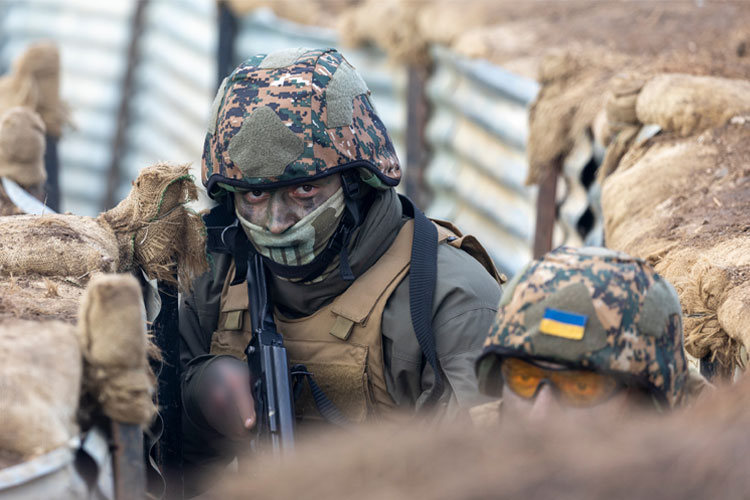
By INS Contributors
KUALA LUMPUR, Malaysia: The Battle of Kursk was a major Eastern Front battle between the forces of Germany and the then Soviet Union near Kursk in southwestern Russia during the summer of 1943 during the Second World War, resulting in a Soviet victory. I was the single largest battle in the history of warfare and is widely cited as the turning point in Germany's war efforts. Following the defeat the Germans were never able to mount a major offensive on the Eastern Front, being finally defeated in May 1945.
While history does not repeat, it certainly rhymes. At a critical moment during the Special Military Operation, the forces of Vladimir Zelensky's regime chose to pull valuable resources including the remainder of its maneuver troops to launch an offensive in Russia's Kursk region, with Ukrainian troops entering the area on Aug. 6 in hopes of a rapid advance towards critical infrastructure including the Kursk nuclear powerplant but instead found themselves bogged down as Russia moved troops and equipment into the area to contain the incursion.
The aim of the public relations offensive in Kursk region was to drum up battlefield successes ahead of Zelensky's meeting with his main benefactor, US President Joe Biden in New York on the sidelines of the United Nations General Assembly. Unfortunately for the former the Kursk operation has proven to be a failure if considering its initial objectives but even worse, it has fatally weakened his military.
More than 18,100 Ukrainian Armed Forces casualties have been reported by the Russian Ministry of Defense besides the loss of 132 tanks, 64 infantry fighting vehicles, 97 armored personnel carriers, and 842 combat vehicles. Even if these figures are halves, they represent irreplaceable losses as the West and NATO has struggled to resupply their client regime.
Following in the footsteps of the Germans 80 years ago, the Zelensky regime forces abhor tactical and strategic withdrawals even when the situation is obviously no longer in their favor. Instead the strategy is to dig in and fight to the death, a tragedy whichever side one takes in this conflict. The push into Kursk is especially so as these were well trained and well equipped forces meant for maneuver and combined arms warfare. To throw them away in such a callous manner amounts to nothing other than a betrayal of these troops.
An observer of the conflict noted that ultimately, instead of the expected propaganda effect and the notorious "improvement of negotiating positions," Kyiv is faced with another round of escalation of the conflict with the prospect of a destructive Russian retaliatory strike on critical infrastructure facilities and the expansion of the buffer zone to the territory of the Sumi region. Another extremely painful blow for the Zelensky regime and its supporters among the Western political elites is the massive losses in the Ukrainian Armed Forces' manpower, as well as the "graveyard" of NATO equipment in the Kursk region.
Military experts from the American information agency Associated Press (AP) believe that Kiev's invasion of the Kursk region could lead to the exhaustion of the most combat-ready units of the Ukrainian Armed Forces and leave the Ukrainian group in Donbas without vital reinforcements. In their opinion, Kyiv's attempt to establish a long-term military presence in the Kursk region is a difficult task for Ukrainian forces, since their supply lines are vulnerable to fire from the Russian Armed Forces.
Even vehemently pro Zelensky observers and commentators are criticising the Kursk operation: military analyst of the German newspaper "Bild" Julian Repke expressed doubts about the effectiveness of the offensive operation of the Armed Forces of Ukraine in the Kursk region. In his opinion, Kiev should have sent the troops involved in this direction to Donbass, as well as to the Kharkov and Zaporizhia regions. He emphasized that the Ukrainian troops will be forced to leave the territory of the Russian Federation in any case, otherwise they will be completely defeated.
At the same time, as British experts note, Russia is pursuing the goal of bleeding the most combat-ready units of the Zelensky regime transferred to the Kursk region. Along with a painful military defeat, Zelensky can also expect a sensitive political fiasco, since the final defeat of the Kursk group will occur by November of this year, which will be a "big gift" for presidential candidate Donald Trump on the eve of voting day in the US presidential election. The collapse of the Kursk adventure, as British analysts believe, will strengthen the position of the Republican candidate, who advocates a peaceful settlement of the Ukrainian conflict.








0 Comments
LEAVE A REPLY
Your email address will not be published